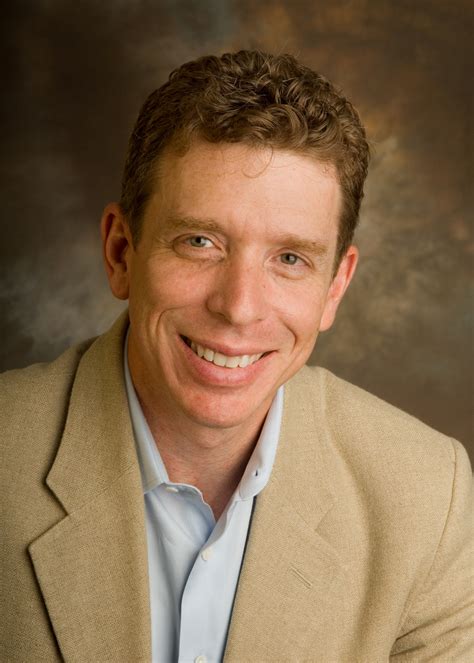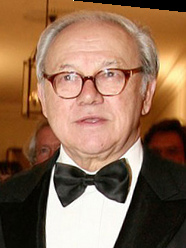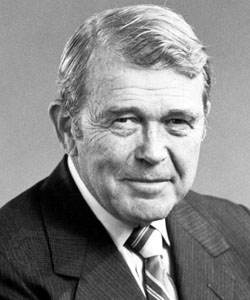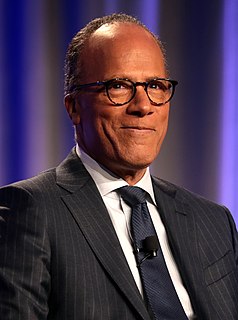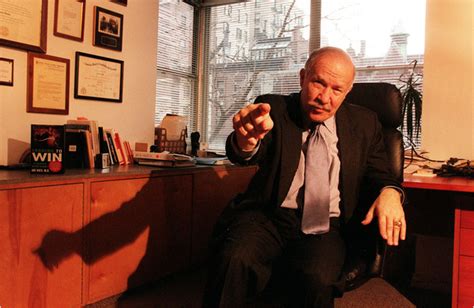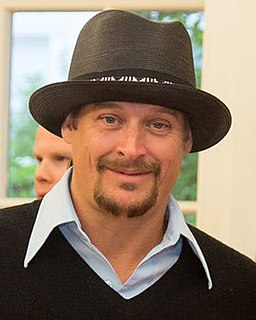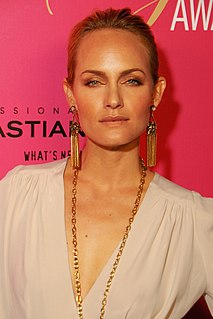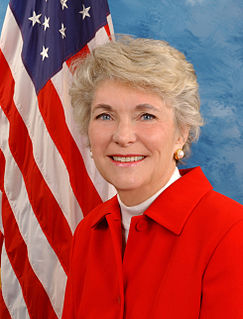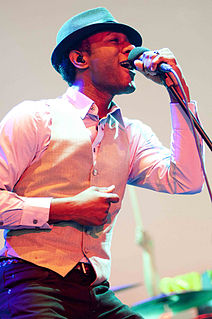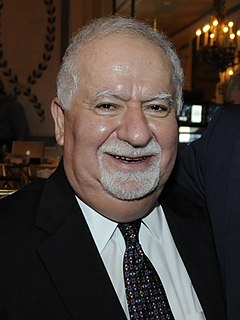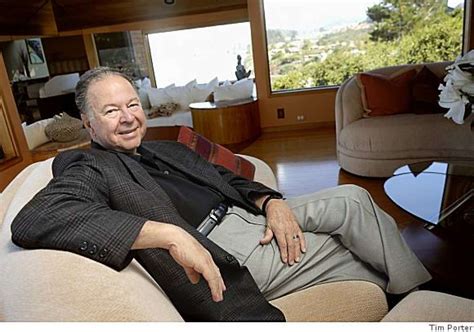Top 1200 New Information Quotes & Sayings - Page 16
Explore popular New Information quotes.
Last updated on April 20, 2025.
When Wikileaks comes out, which I have nothing to do with, they're giving classified information. They're giving information about Hillary [Clinton] cheating on the debates. No one mentions that Hillary received the questions to the debates. Seriously, can you imagine if I received the questions? It would be the electric chair, ok?
I was adopted. I was born in Edinburgh, and adopted when I was about two weeks old. And it's a good thing, I think, really, that back then, in '75 when I was born, you were really given a lot more information than you're given now when you're adopted. And you know, you can access that information when you're older.
Learning would be exceedingly laborious, not to mention hazardous, if people had to rely solely on the effects of their own actions to inform them what to do. Fortunately, most human behavior is learned observationally through modeling: from observing others one forms an idea of how new behaviors are performed, and on later occasions this coded information serves as a guide for action.
I think there's confusion around what the point of social networks is. A lot of different companies characterized as social networks have different goals - some serve the function of business networking, some are media portals. What we're trying to do is just make it really efficient for people to communicate, get information and share information.
When confronted with information streaming from the eyes, the brain will interpret this information in the quickest and most efficient way possible. Time is energy. The longer the brain spends performing some calculation, the more energy it consumes. Considering the brain runs on about 40 watts of power (a lightbulb!), it doesn't have a lot of energy to spare.
Each day that we live, we're taking in new information, ideas, concepts, experiences, and sensations. We need to consciously stand guard at the doors of our minds to make sure that whatever we're allowing to enter will cause our lives to be enriched, that the experiences we pursue will add to our stockpile of possibility.
Broadly speaking, the problems with the Espionage Act are that it is hopelessly broad. And we tend to use the Espionage Act - we think about the Espionage Act as forbidding disclosures of classified information. That's not really what the statute says. What the statute talks about is information related to the national defense.
Remember this, and remember this well: when someone is telling the TRUTH and exposing information that is meant to be hidden from the masses, the side that is being attacked and accused will use all their resources and associations to try to discredit and discount the professional and moral character of the person revealing the threatening information. They will do everything to make that person look smaller than they really are.
Snowden has enough [sic] information to cause harm to the U.S. government in a single minute than any other person has ever had. The U.S. government should be on its knees every day begging that nothing happen to Snowden, because if something does happen to him, all the information will be revealed and it could be its worst nightmare.
The whole idea of action being a carrier of information is something that comes directly from theater. That's, in some ways, the one thing I've been trying to contribute. I still write things outside of architecture - not really fiction, but not nonfiction. I like dialogue as a form, because the text is only the trace of an action. The consequential information is carried in the action you choose to put on that text.
For me, the biggest thing I've learned is how to be myself and the fact that viewers actually want to feel like they're getting to know you as a person. They value you because you're a reporter and you're bringing them new information, but they also want to feel like they get a sense of your sense of humor and what things you're interested in.
One of the interesting things about the history of poetry in the 16th, 17th, and 18th centuries is that people who read liked getting their information in rhyme just as much as in prose. The genre that we would think of as nonfiction often was written in verse in forms like the Georgic when people thought that one of the tasks of poetry was conveying arguments and information in a pleasant way.
Creative people have an abiding curiosity and an insatiable desire to learn how and why things work. They take nothing for granted. They are interested in things around them and tend to stow away bits and pieces of information in their minds for the future use. And, they have a great ability to mobilize their thinking and experiences for use in solving a new problem.
I think we're more relevant than ever because it is such a noisy environment out there. What's a journalist now? It's anybody with a way to get information out and you're sitting there with your smartphone in front of you. That's what we're up against now. There's a lot of unfiltered information. Some of it is accurate, some of it way off base. We're that safe port in the storm.
The mechanical brain does not secrete thought "as the liver does bile," as the earlier materialists claimed, nor does it put it out in the form of energy, as the muscle puts out its activity. Information is information, not matter or energy. No materialism which does not admit this can survive at the present day.
If you give a man the correct information for seven years, he may believe the incorrect information on the first day of the eighth year when it is necessary, from your point of view, that he should do so. Your first job is to build credibility and the authenticity of your propaganda, and persuade the enemy to trust you although you are his enemy.
It can be tempting to blame others for our loss of direction. We get lots of information about life but little education in life from parents, teachers, and other authority figures who should know better from their experience. Information is about facts. Education is about wisdom and the knowledge of how to love and survive.
To be a super-trader, you'll need an edge to overcome the laws of probability and the uncertainty of the marketplace. That edge comes from information flow, the ability to correct your habits in terms of the market's characteristics, and being able to take risks, cut losses, expand your information network, ferret out ideas, and take recommendations.
You know, I guess there's enough information out there to support that I'm a crazy, wild dude and rock and roll and this, that and the other. And there's enough information to support that, you know, I'm a single father, that, you know, has been a pretty standup guy in his community and pretty private about that stuff. But it's on both sides.
Perhaps it won't matter, in the end, which country is the sower of the seed of exploration. The importance will be in the growth of the new plant of progress and in the fruits it will bear. These fruits will be a new breed of the human species, a human with new views, new vigor, new resiliency, and a new view of the human purpose. The plant: the tree of human destiny.
My father saw that there is no way we can stay in the G-20 and grow with this level of corruption. In early 2015, one of his first orders to his team was to collect all the information about corruption - at the top. This team worked for two years until they collected the most accurate information, and then they came up with about 200 names.
What happens when I'm dealing with the problems in North Korea and the Middle East? Are you folks going to be reporting all that very, very confidential information, very important, very - you know, at the highest level? Are you going to be reporting about that, too? So I don't want classified information getting out into the public in a way that was almost a test.
A cardinal principle that we must not stray from - no exceptions - is that your genetic information is your business in terms of who sees it. Nobody should be gaining access to that information without your explicit permission, and nobody should be requiring you to take a genetic test unless you decide that that's what you want to do.
I am super passionate about my new business because it has the potential to disrupt the fashion industry in a positive way. Master & Muse is providing a place to buy better. There are many big issues in producing fashion today, and the consumer doesn't fully understand the problems at hand. That is where we come in. We are providing awareness, information, and great fashion.
There is a real hunger for information about Obama and a sense that information is not being covered or, in some cases, even being withheld. There is a sense that there are elements of the media that are protective of Obama, that they would rather block a story that is embarassing about Obama than let the American public decide.
What we're going to do with cyber-attacks - and we have already actually started - we started well before the executive order actually was issued - is working with the private sector, determine how best to share information, because, you know, we can't help until we know that there has actually been an attempted intrusion or attack. Information-sharing piece is very important.
The UN stopped using Chalabi's information as a basis for conducting inspections once the tenuous nature of his sources and his dubious motivations became clear. Unfortunately, the same cannot be said for the mainstream US media, which give prominent coverage to sources of information that, had they not been related to Hussein's Iraq, would normally be immediately dismissed.
The sense organs, which are limited in scope and ability, randomly gather information. This partial information is arranged into judgments, which are based on previous judgments, which are usually based on someone else's foolish ideas. These false concepts and ideas are then stored in a highly selective memory system.
In order to preserve a balance, while we aren't planning to build a missile defence of our own, as it's very expensive and its efficiency is not quite clear yet, we have to develop offensive strike systems. They [U.S.] should give us all the information about the missile defence, and we will be ready then to provide some information about offensive weapons.
[Even the mechanism can be endowed with an image. Thus] the thermostat has an image of the outside world in the shape of information regarding its temperature. It has also a value system in the sense of the ideal temperature at which it is set. Its behavior is directed towards the receipt of information which will bring its image and its value systems together.
Americans are in need of very objective information, and sometimes it's easier to absorb the message through entertainment and through a great story than through the news outlets [where] everything is sensationalized. Not only are you getting information that sort of defies stereotypes, but you're also getting a wonderful story with hopefully good performances.
We receive experience from nature in a series of messages. From these messages we extract a content of information: that is, we decode the messages in some way. And from this code of information we then make a basic vocabulary of concepts and a basic grammar of laws, which jointly describe the inner organization that nature translates into the happenings and the appearances we meet.
I think by the next generation either we'll have a lot of idiots who are just completely immersed in media and corporatized information, or we'll have people who enjoy media and corporatized information, but are more interconnected with human beings around the world ... And who share common goals and are willing to accept that they are a global citizen. I think the latter is more the direction.
That is the future, and it is probably nearer than we think. But our primary problem as universities is not engineering that future. We must rise above the obsession with quantity of information and speed of transmission, and recognize that the key issue for us is our ability to organize this information once it has been amassed - to assimilate it, find meaning in it, and assure its survival for use by generations to come.
I spend a lot of time going over old conversation summaries. A lot of the old ones are about ideas that ended in failure, the project didn't work. But hey, you know what? That was five years ago, and now computers are faster, or some new information has come along, the world is different. So we're able to reboot the project.
Certain kinds of things that the novel used to do, which was, "Oh, I'm living out here in West Nowhere, Nebraska and I'm curious how the upper class in New York City lives, I guess I'll read a novel about it." We don't have to do that now. You just turn on the TV. Turn on Lifestyles Of The Rich And Famous. You can get that information anywhere. Novels don't have to do that anymore.
As Stewart Brand (co-founder of Emeryville's Global Business Network) likes to say, "Information lasts forever. Digital information lasts forever or for five years, whichever comes first." There are examples everywhere. The tapes from the original Viking landers that went to Mars are at (NASA's) Jet Propulsion Laboratory, but there is no machine that can read the tapes.
Intelligence is the capacity to receive, decode and transmit information efficiently. Stupidity is blockage of this process at any point. Bigotry, ideologies etc. block the ability to receive; robotic reality-tunnels block the ability to decode or integrate new signals; censorship blocks transmission.
I think that when people read fiction, they're really reading for wisdom. I am. That's what most of us really love. If we read a novel that rocks our world, it's because there's something in it that we didn't know already. Not just information but really wisdom - sort of what to do with our information. And wisdom comes from experience.
Images are so prevalent that we get most of our information from them. We receive multiple layers of meaning within a very short compact picture, and that is what the right brain does best. Indeed, as our culture becomes more image-based, we're balancing our hemispheres. Through this new re-wiring, we're becoming a much gentler and kinder society.







